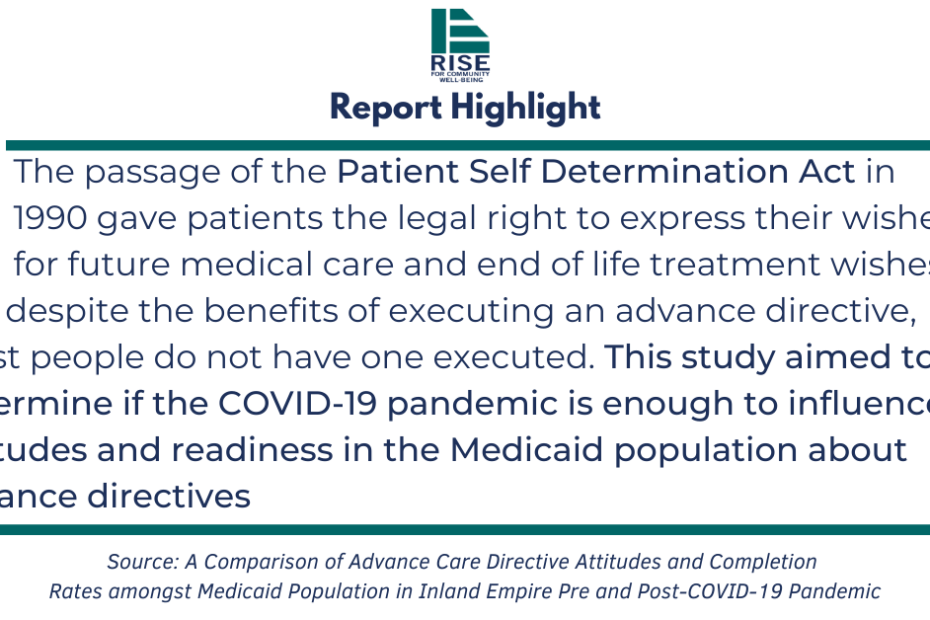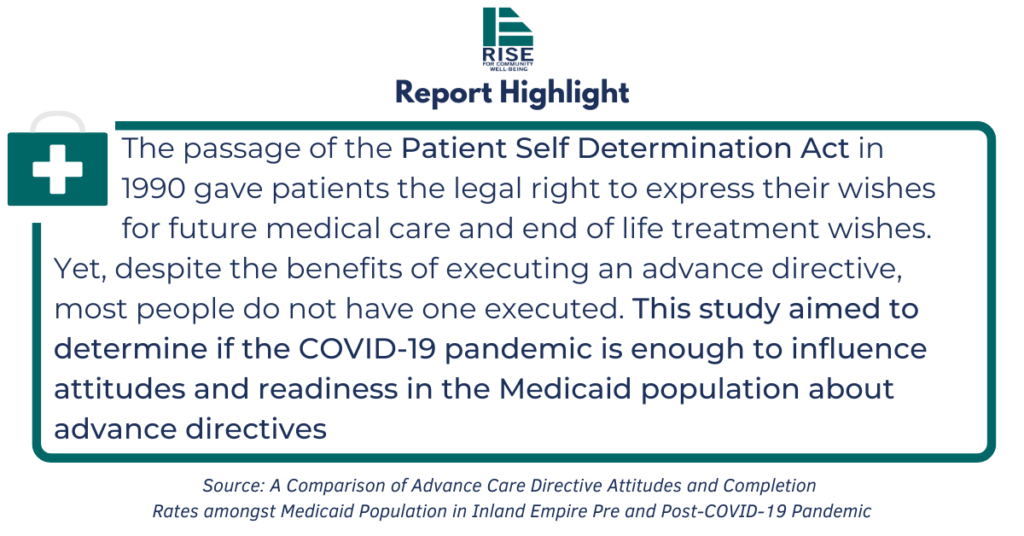A Comparison of Advance Care Directive Attitudes and Completion Rates amongst Medicaid Population in Inland Empire Pre and Post COVID-19 Pandemic
Authors: Ethel P. Manley
Publication: ProQuest
Date: December 2020
The passage of the Patient Self Determination Act in 1990 gave patients the legal right to express their wishes for future medical care and end of life treatment wishes. Yet, despite the benefits of executing an advance directive, most people do not have one executed. Few studies have been done that focus on the Medicaid population and their attitudes about completing an advance directive during a pandemic. This study aimed to determine if the COVID-19 pandemic is enough to influence attitudes and readiness in the Medicaid population about advance directives. A cross-sectional study was conducted using a modified version of Porter Novelli’s HealthStyles end of life items and the four-item version of Measuring Advance Care Planning: Optimizing the Advance Care Planning Engagement Survey to obtain information about exposure to health information, health promotion, and communication about advance directives. The population sample consisted of 63 adult Medicaid recipients, 13 males and 49 females living in San Bernardino and Riverside counties in California. A paired samples t-test and a one-way analysis of variance (ANOVA) were performed. Based on these results, the COVID-19 pandemic was not a large enough motivator to influence advance directive completion in the Medicaid population.

